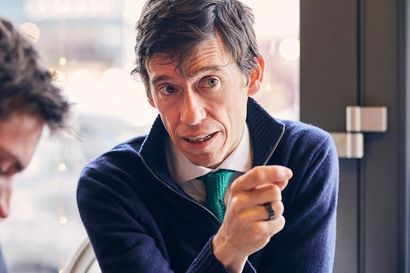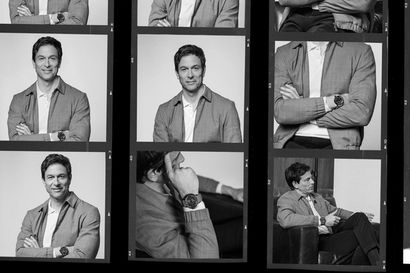Spencer Matthews is about to run 30 marathons in 30 days across the desert. That’s one of those sentences that can rush right by you, simply wash over you, as if you’re flicking through The Guinness Book of Records on some bored childhood Sunday: most crème brûlées eaten in an hour; most watermelons smashed with the forehead; most consecutive marathons run on sand.
But as a thought experiment, just imagine hour five, day six of that challenge. The adrenaline and bonhomie of the start line is a distant memory. You have done five and a bit marathons already, across sand (have you ever run on a beach? It’s a bit like one of those panic dreams where you can’t move anywhere near as fast as you’d like). You have 24 and a bit marathons still to go. Twenty-four. And a bit. (I wouldn’t even want to do anything I liked for 30 days straight.) You have listened to every episode of every podcast you ever thought you enjoyed. Fred Again has long lost his effect. It is 35 degrees. It is always 35 degrees. Sand, sand, everywhere, but not a piña colada to drink.
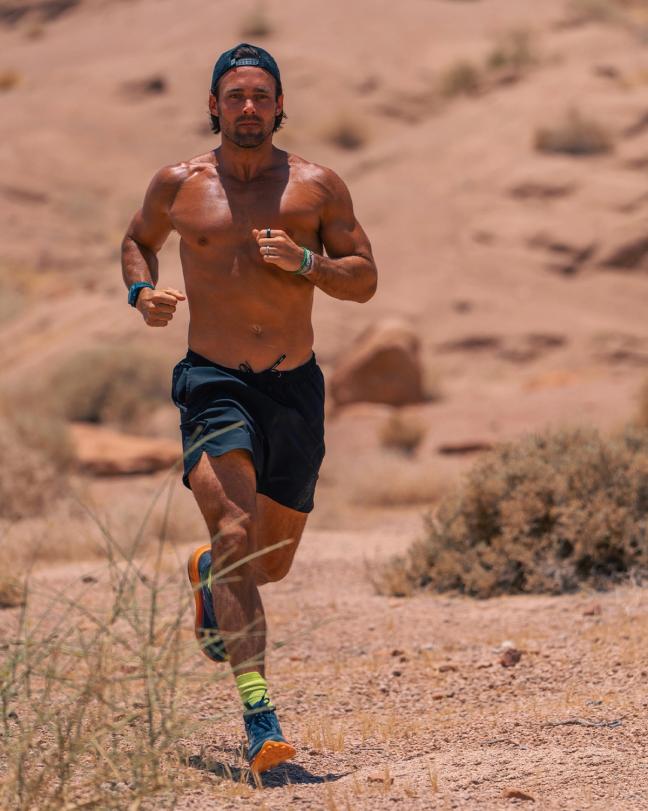
So this is an impressive challenge. We are not at Park Run any more. This is a proper, genuine, almost incomprehensible feat. “It is a different feeling to the excitement that you would feel with a normal ultramarathon, perhaps,” says Matthews, a few days before he leaves for Jordan to begin the run. “Regardless of what happens to you in a normal ultra, I think a certain level of grit and resilience can drag you through. But with this, if I somehow get a stress fracture on day two, it’s going to be very difficult to do 28 marathons after that. So I need to take it far more seriously than anything I’ve ever done before. We’re going to be moving very slowly through this enormous desert where The Martian was shot, you know. So we’re gonna feel like aliens – we’re gonna be off the face of the Earth, essentially. I’m very excited.”
The obvious question to ask is, beyond the admirable charity fundraising and the trophy of a world record, just why someone would choose to do this. The love of running itself, Matthews admits, “is a relatively new thing.” He read the other day that 99% of people over 30 will never sprint again in their lives. “And I just thought: that’s such a shame, because sprinting and running and exercising and feeling at the limit of your capability is such a fun thing to do. And so it made me feel a little bit sad, that.”
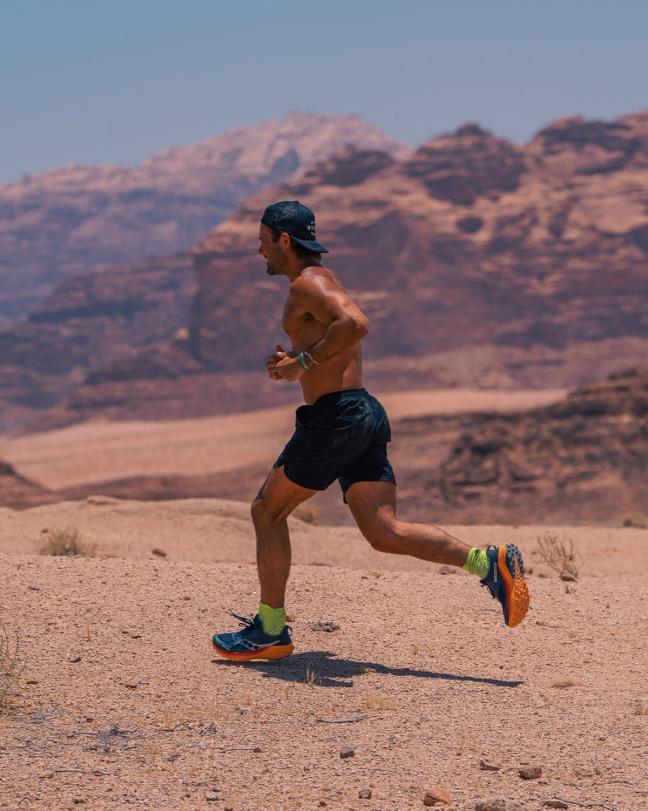
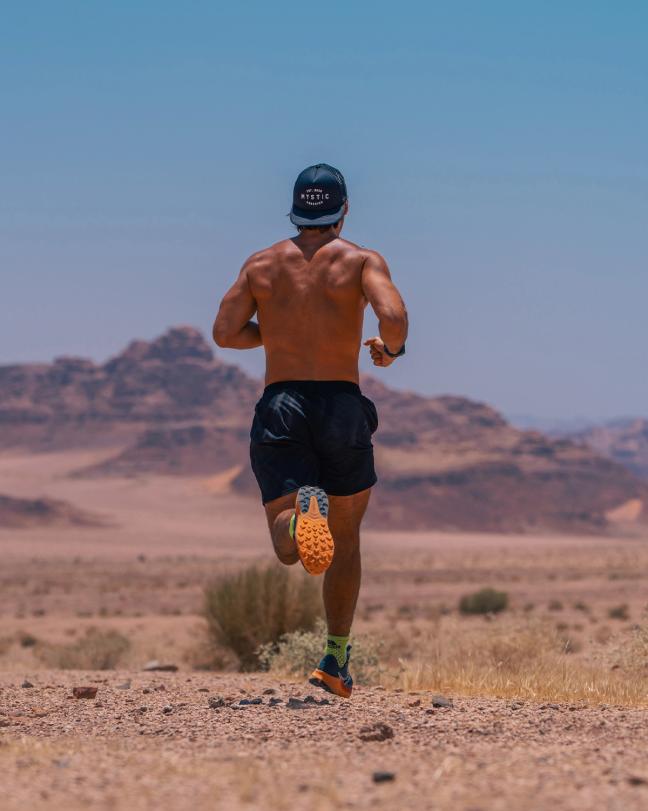
“Comfort can be a killer, I think,” he continues – which could be connected to another impulse for the feat. Matthews, perhaps, had been a little too comfortable in the past. When he first moved to London, before his days in Made in Chelsea, he worked in investment banking, “where my job was essentially to be an entertainer.” He was sent out to restaurants, bars, and nightclubs to oil up prospective clients. “I’ve had a lot of jobs where socialising and being the life and soul of the party and having a drink in my hand at all times was kind of essential to the role,” he says. “And I was pretty good at it.” He has spoken before about his uncomfortable relationship with alcohol, something that spurred him to go teetotal in his early 30s and set up CleanCo, a non-alcoholic spirits company.
“But I guess it’s fair to say that I’m probably quite happy that I’ve had these negative times in my life to allow me to grow and change,” he adds. “I think if you didn’t have that excess and that hedonism, you’d be less inclined to try and do some of the stuff that I’m doing now.” He spoke to a friend recently who had been on a similar journey.
"Comfort can be a killer."
“And he understood this straight away. Most people ask me why on earth I’m doing this. They say they can’t imagine anything they’d like to do less. And my friend just said he got it. As guys that have had problems with drink, we want to be able to prove to ourselves that anything that we would have found impossible before, we can do right now as part of the progression.”
There are other motivators. Matthews speaks briefly about the concept of “thin space,” an ancient spiritual idea where earth and heaven seem momentarily closer. “It’s that gust of wind on the back of your neck when you’re thinking about someone. It’s that extraordinary feeling that is unusual and comes when you need it most. When you’re incredibly depleted and exhausted, when you’re in a place where you feel particularly uncomfortable – that’s when you might also experience something incredibly beautiful.”
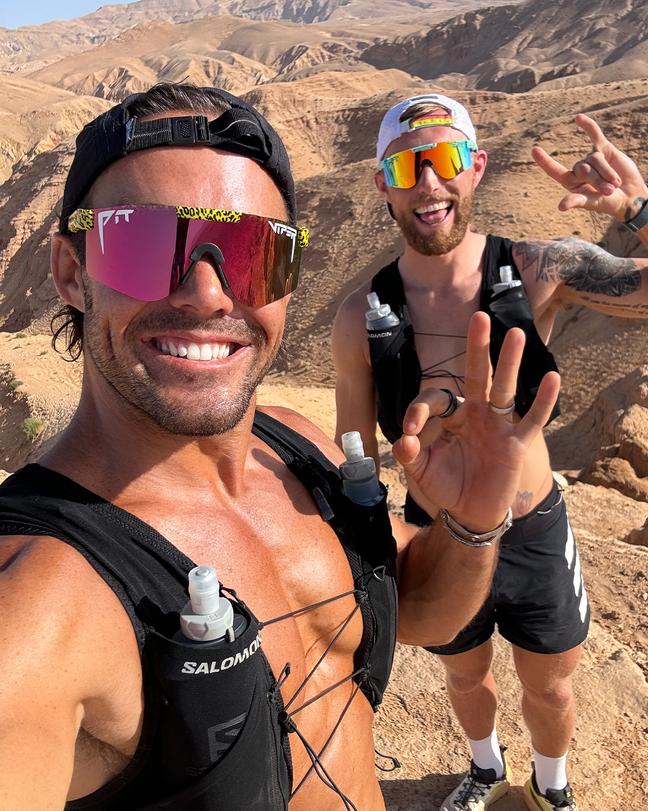
Matthews’ older brother Michael died when Matthews was 11. Michael Matthews was the youngest man to ever summit Everest but died on the way back down, and his story was the subject of the remarkable documentary Finding Michael that Matthews made last year. “Though I’m not necessarily doing these marathons to feel closer to my brother or to be in thin space,” he says, “it’s a beautiful addition to something that is inevitable.”
Certain things will help him on the way. Friends have made playlists. His children have made bracelets, “which will become the most valuable thing I’ve ever owned once I’m out there.” Heights, the supplement brand, which is supporting the race, “is going to be a massive help” with his recovery, he says. But mainly it’ll be grit. Plain old magical grit. “I think if you just tell your brain to push through at times when it’s asking you to stop, you’d probably be quite surprised about how much further you can go,” Matthews says. “When you feel like you’re done, you’re probably not done. And that goes for anything, really, in sport or life. Carrying on is ordinarily the best thing to do. If you just put one foot in front of the other and keep going, you’ll probably never regret it.”
This feature was taken from Gentleman's Journal's summer 2024 issue. Read about it here.
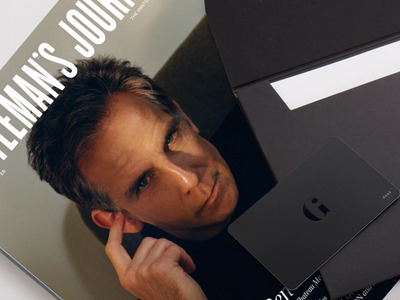
Become a Gentleman’s Journal Member?
Like the Gentleman’s Journal? Why not join the Clubhouse, a special kind of private club where members receive offers and experiences from hand-picked, premium brands. You will also receive invites to exclusive events, the quarterly print magazine delivered directly to your door and your own membership card.

